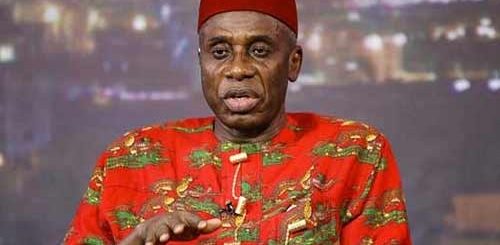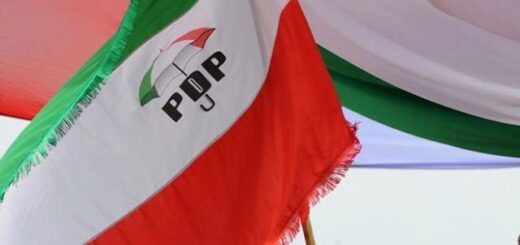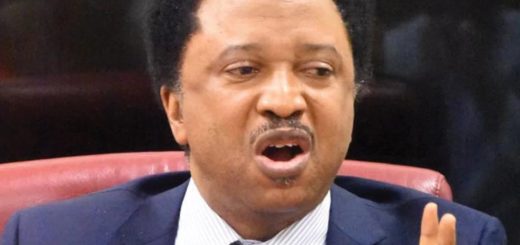A Bitter Reunion: Atiku and El-Rufai’s Political Dance of Convenience
 Though the year 2025 is still in its infancy, the political landscape is already charged with the kind of strategic moves and cacophonous squabbles one might expect in the final stretch leading up to the 2027 elections. The drama surrounding these maneuvers might lead one to believe the election is imminent.
Though the year 2025 is still in its infancy, the political landscape is already charged with the kind of strategic moves and cacophonous squabbles one might expect in the final stretch leading up to the 2027 elections. The drama surrounding these maneuvers might lead one to believe the election is imminent.
One of the most fascinating realignments forming as we edge closer to 2027 involves the unexpected unity between former Vice President Atiku Abubakar and former Governor Nasir El-Rufai. It is a partnership borne out of adversity, one where El-Rufai, having been betrayed by his exclusion from the Bola Tinubu administration, now seeks an unlikely refuge in the arms of Atiku—the very man he once ruthlessly opposed.
El-Rufai’s feelings of betrayal are understandable, given that he played a crucial role in facilitating Tinubu’s rise to power only to find himself sidelined. In response, he turns to Atiku, whom he had once done everything in his power to thwart, even during the fiercest of battles. This alliance is as strange as it is strategic, like a soldier, dishonored and cast aside after helping secure a throne, finding solace in the camp of a former mentor he once betrayed. The irony is thick, and yet, the shared anger at the current regime seems to create a fragile, uneasy truce.
It’s important to remember that El-Rufai’s political ascent was fueled by his brutal opposition to Atiku. He played a pivotal role in the 2006 campaign to sabotage Atiku’s presidential ambitions, even going so far as to relay Obasanjo’s orders to foreign diplomats, urging them to block Atiku’s path to power. A 180-degree turn, from sworn enemy to collaborator, makes for a fascinating spectacle, but one that is, unfortunately, all too familiar in the cutthroat world of politics.
El-Rufai is known for his political about-turns, as evidenced by his early dismissal of Muhammadu Buhari, whom he later helped become president. But as Atiku and El-Rufai now work together against their mutual enemy, one can’t help but wonder: Does Atiku view El-Rufai as a repentant betrayer seeking redemption, or as a man simply acting out of sheer political survival?
Atiku must surely be cautious in this new alliance. It’s akin to dining with someone who has poisoned your drink in the past—you watch your every move and word, knowing that today’s ally could just as easily be tomorrow’s foe.
Meanwhile, in a similar vein of political intrigue, whispers of a possible alliance between Bola Tinubu and Rabiu Musa Kwankwaso swirl beneath the surface. Despite their public feuding, strategic moves are being made behind closed doors, hinting that a deal may be brewing. This could serve as a counterbalance to the Atiku-El-Rufai coalition and further complicate the already murky waters of Nigerian politics.
But amid these shifting alliances, there is one glaring absence: no one is truly addressing the plummeting plight of the Nigerian masses. Politicians are so consumed with power struggles and political maneuvers that they fail to recognize or acknowledge the suffering of the ordinary citizens caught in the relentless grind of an economy that continues to favor the rich.
The condition of the poor—the most vulnerable to the forces of a market-driven economy—is something I’ve always felt deeply connected to. Having grown up facing the harsh realities of poverty, I cannot ignore how the policies of today are steadily pushing the people further into despair.
And yet, despite the ongoing suffering, there is little indication that any of the politicians, whether in power or in opposition, are offering an alternative vision for the economy. Their critiques are muted, and their policies appear to be governed by a neoliberal ideology that prioritizes economic “growth” over human welfare. The poor may be groaning, but no one seems to hear them.
Take Argentina, for instance—its populist president is being praised for growing the economy even as millions fall deeper into poverty. The same praise is being showered on Tinubu for similar “reforms,” which, while presenting budget surpluses, come at the cost of deepening inequalities and economic hardship for the masses.
In this bleak reality, it’s as if politicians are more concerned with growth metrics that only benefit the elite, while the suffering of the masses goes unnoticed. Their lack of concern for the common people, coupled with the population’s growing apathy, creates a dangerous cycle where hope is replaced with resignation.
Perhaps Bertrand Russell’s words in 1923 still ring true for Nigeria today: people believe that a change of political party will bring salvation, only to find themselves disillusioned when the promises remain unfulfilled. By the time they realize that all the parties have failed, they are old, weary, and ready to give up hope entirely. The cycle continues.
The politicians may not care—but it’s hard to escape the nagging feeling that if they don’t change their approach soon, the country will pay the price for their apathy.













